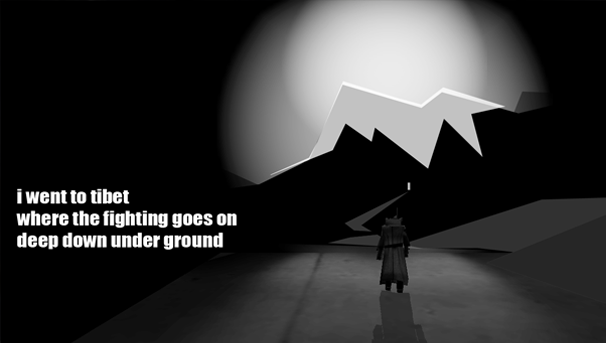Swiss Games
Garden
This GameArt project by AND-OR refers to Friedrich Dürrenmatt's narrative fragment "Winterkrieg in Tibet" (Winter war in Tibet). The famous writer and dramatist broke war down into the simple formula: never put the enemy in question. But what happens if there isn't an enemy anymore? If all of a sudden the enemy is amiss? Down in the bunker systems under the Himalayas time came to a standstill. Soldier 23 had battled his way through the rèduit systems of Switzerland and through wartorn neighbour areas during the war. He leaves his government behind, dozing in its federal parliament building bunker, deep down under the Blümlisalp mountain, and moves on to Tibet as a mercenary. There he finds new work and what is more important new enemies. The tunnels are littered with corpses, and eventually he has to finish off his former commander. "Hänschen, durchlöche mich mal!" (Little Jack, please put bullet holes in me!) he says. Or is it just an illusion? The endless killing? The steadily spawned new enemies? Killing or not killing. There is no choice! There is no escape from the (game-)labyrinth! The labyrinth quite simply is the location for experiments. A location at which only Minotaur waits or according to Dürrenmatt your alter ego awaits you. There is no other way but shooting the others; all of the rest. In the underground systems of the Himalayas the corpses pile up. Soldier 23 has to substitute his legs with rolls and his arms with weapons. In the end, all that remains for him is scribble on the wall, meter for meter, back and forth. laichenberg means mountain of spawning (german: "laichen") and piles of corpses (german: "Leichen"). In an apocalypse it shows how a simple defect alters a game. laichenberg does not make the dead disappear such as firstperson shooters usually do. The effect is that soon enough there is no space left in the labyrinth to play anymore.

Information
Data Quality
55%
Do you have information that might help completing this page?
Contact us* Game information completion rate.
